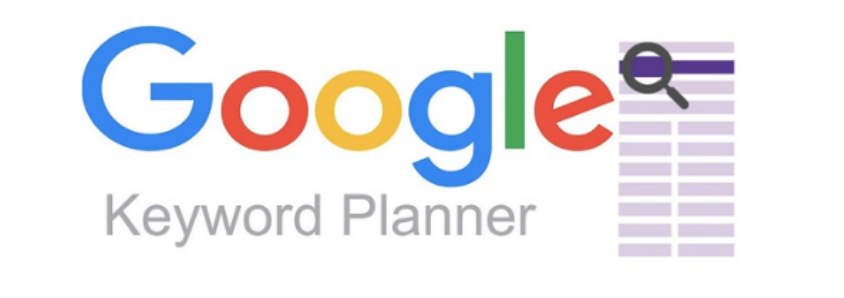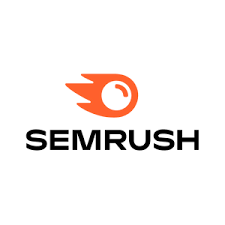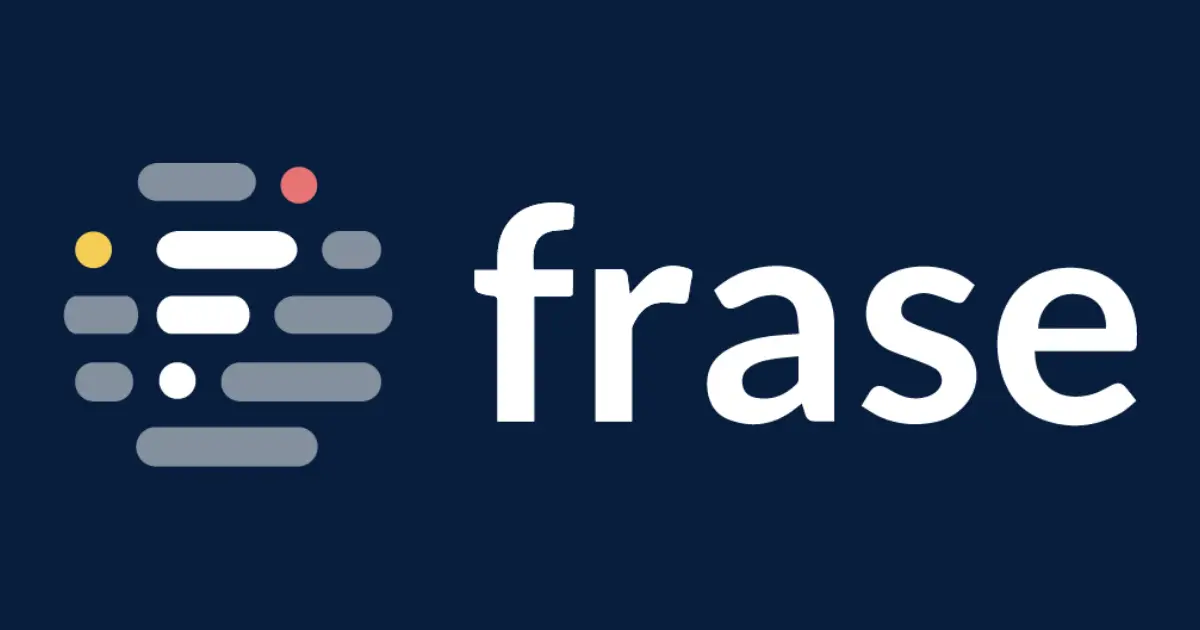
Back to hub
Blog
The Best Keyword Research Tools in 2025: Boost Your SEO Strategy

Mathieu Co-founder
Published on May 16, 2025Updated on Aug 3, 2025
In the ever-evolving world of SEO, finding the right keywords is like discovering treasure maps that lead directly to your target audience. But with countless tools available in 2025, how do you separate the gold from the pyrite?Whether you're a seasoned SEO veteran or just starting your digital journey, this comprehensive guide will help you navigate the complex landscape of keyword research tools and find the perfect match for your needs.
Why Keyword Research Remains Critical in 2025's SEO Landscape
The right keyword tools can significantly impact your website's visibility in 2025. When you type words into Google, those words are keywords. If you use the right keywords on your site, more people can find you. This means more readers, more customers, and more fun for everyone!Keyword research in 2025 looks very different from just a few years ago. The biggest shift is the rise of AI-enhanced search. With tools like Google's SGE (Search Generative Experience) and the increase in zero-click searches, the traditional rank-and-click model is quickly becoming obsolete. Having visibility in the SERPs no longer guarantees traffic.
If your only focus is driving traffic, you're likely missing the bigger picture. Today's search strategies must consider how users phrase queries, what they're trying to accomplish, and how to engage with them directly within the search experience.Topical authority isn't new, but it's more important than ever. To rank for meaningful terms, your site needs depth and breadth on a subject.Think of keyword research as the foundation of your digital marketing house. Without a solid foundation, even the most beautiful house will eventually crumble.
Similarly, without proper keyword research, your content might look great but won't deliver the results you need.In our digital outreach campaigns at Emelia.io, we've seen firsthand how targeting the right keywords can dramatically increase engagement rates and conversion metrics. It's not just about traffic—it's about attracting the right visitors who are likely to become loyal customers.
Types of Keyword Research Tools: Free vs. Paid
Some keyword tools are free, and some cost money. Free tools are great for starting. Paid tools give you extra help. Both kinds are good, so let's find the best ones for you.
Free Keyword Research Tools
For those just getting started or working with limited budgets, these free tools offer surprising depth:
1. Google Keyword Planner

Google Keyword Planner is a free tool designed primarily for advertisers using Google Ads, but it's also widely used for SEO and content marketing. Since it pulls data directly from Google's search engine, it provides some of the most accurate and reliable keyword insights available. This tool allows users to discover new keyword ideas, analyze search volume, and assess competition levels. It also provides cost-per-click (CPC) estimates, which can be useful in determining the commercial value of a keyword. While its main focus is on paid advertising, SEO professionals use it to identify high-potential keywords for organic search optimization.Before you came here, I'm willing to bet you're already familiar with Google AdWords Keyword Planner. Although it's not a standalone solution, Keyword Planner is a trusted keyword research tool in the industry. Of course, being a Google product helps amass a large user base. But what marketers really like about it is the sheer number of long-tail keyword suggestions you can obtain — 100% free
.Pro tip: While Keyword Planner is free, you'll need a Google Ads account to access it. Don't worry—you don't need to run ads to use the tool.
2. Answer The Public

AnswerThePublic is a unique keyword research tool that focuses on question-based search queries. Instead of just providing keyword lists, it generates a visual map of real questions, prepositions, and comparisons that people search for related to a given keyword. This makes it especially valuable for content creators, bloggers, and SEO professionals looking to optimize for long-tail keywords and voice search queries. By pulling autocomplete data from Google and Bing, AnswerThePublic helps users understand what their audience is actively searching for. Whether you're brainstorming blog post topics, optimizing FAQ pages, or planning video content, this tool provides insightful keyword ideas based on real user intent.At Emelia.io, we've discovered that question-based keywords often have higher conversion rates when incorporated into our automated email campaigns. People searching with questions are typically looking for solutions—exactly what our outreach platform provides.
3. Ubersuggest

Ubersuggest, created by digital marketing expert Neil Patel, is a powerful keyword research tool that provides in-depth keyword data for SEO and content marketing. Unlike basic keyword generators, Ubersuggest offers search volume, keyword difficulty, and competitor insights, making it a well-rounded tool for anyone looking to improve their search rankings. One of the biggest advantages of Ubersuggest is its ability to analyze competitor websites and uncover the keywords they are ranking for. This allows businesses to reverse-engineer successful SEO strategies and find untapped keyword opportunities. Additionally, Ubersuggest suggests long-tail variations, related keywords, and content ideas, helping users craft SEO-friendly content that matches search intent.Ubersuggest shows you how to win the game of SEO. Just type in a domain or a keyword to get started. Imagine being able to reverse engineer your competitors' SEO, content marketing, and social media marketing strategy. Ubersuggest allows you to get insight into the strategies that are working for others in your market so you can adopt them, improve them, and gain an edge.What makes Ubersuggest stand out is its hybrid model. If you're looking for a free keyword generator, Ubersuggest is surely worth checking out. It's one of the few free keyword research tools I'd personally use to fuel my content marketing campaigns.But for more advanced features, you can upgrade to their affordable paid plans.
Paid Keyword Research Tools
For businesses ready to invest in premium insights, these tools offer advanced functionality:
1. Semrush

With the help of its search engine keyword tracker, you can assess the performance of your keywords and see how they compare with your competitors. The tool provides detailed reports, separate for organic and paid search, and comes with a visualization of your competitors. Another cool feature is to analyze your competitors' paid campaign history. You can find out which competitor ads are the most effective and popular, and which keywords they use to promote their ads in paid searches.Semrush is one of the most popular marketing platforms for search engine keyword research. The tool includes a wide range of valuable tools and reports that can help you with keyword research and local SEO, social media management, content marketing, website audit, and more. Semrush offers more advanced keyword data and makes it easy to receive details about SERP features and detailed analysis of current results. You can also find out where your competitors rank and which keywords they use for organic SEO and PPC advertising.
The best thing about Semrush is finding additional keywords from WordPress integrated within the All-in-One SEO plugin. "Semrush is like a lighthouse that helps to surf through the ocean of websites," said Kashif Raza from Kamil Web Solutions. "Its detailed keyword tool provides many ideas based on your desired search volume, spots previously used words by your competitors, and offers excellent keywords to rank for."When we conduct B2B outreach campaigns through Emelia.io, we often use Semrush to identify high-value keyword opportunities that our clients can target to enhance their visibility in specific industries.
2. Ahrefs

Ahrefs is one of the most well-known SEO platforms, especially for link building. But its Keywords Explorer tool holds its own when it comes to keyword research. You'll get all the core metrics: keyword difficulty, local and global search volume, traffic potential, and click-through rates.What's unique about Keyword Explorer is the fact that Ahrefs doesn't just show you search volume.
They also let you know how many clicks you'll get if you rank for that keyword. It's no secret that Google is packing the SERPs with features that "steal" clicks from the organic results. And Keyword explorer takes this into account.Ahrefs excels in its backlink analysis, keyword research, and site auditing capabilities, making it an excellent choice for users focused on SEO and backlink strategies.The click data is particularly valuable as it helps us at Emelia.io determine which keywords are most likely to drive not just traffic, but actual engagement—essential for any successful outreach campaign.
3. SE Ranking

As an all-in-one platform, SE Ranking comes with a lot of different tools to help with your SEO efforts. But the ones that are most useful for keyword research are the keyword research tool, competitive research tool, keyword grouper, and rank tracker. I like to use the keyword research tool to discover and brainstorm ideas. You just enter one or more seed keywords and hit Analyze.
Then, it'll load up a report with everything you need to know about that keyword (including difficulty, search volume, CPC, etc.) as well as a long list of related and similar keyword ideas.SE Ranking's keyword database is one of the biggest and most reliable on the market. It is backed by SE Ranking's own crawlers and keyword processing algorithm. Keyword Research also offers cross-tool integrations with Keyword Manager, Content Editor, and Rank Tracker.
4. KWFinder by Mangools

KWFinder by Mangools is the best keyword research tool for beginners. It's affordable, intuitive, and super-effective at finding low-competition, high-volume keywords. The whole idea behind Mangools is that SEO should be easy.KWFinder by Mangools is the best keyword research tool for beginners. It's affordable, intuitive, and super-effective at finding low-competition, high-volume keywords.
The whole idea behind Mangools is that SEO should be easy. In line with that goal, everything about the platform is built to be as easy to use as possible. The interface is super straightforward: you can either search by keyword or search by domain. Either option will generate a list of keyword ideas. If you search by domain, you can see the keywords your competitors are ranking for, their average ranking position, search volume, etc. To pick out keywords that are easy to rank for, you can filter them by difficulty. Each keyword is assigned a Difficulty Score (from 1 to 100) based on how competitive the SERPs are. You can also view search volume, CPC, and all the other metrics that matter.
AI-Powered Content Optimization Tools
In 2025, the line between keyword research and content optimization has blurred, with AI tools offering comprehensive solutions that do both:
1. MarketMuse

MarketMuse is an AI-powered SEO tool that helps digital businesses develop strategic content plans to rank higher in search. Using advanced natural language processing, it analyzes topics, keywords, and trends to identify untapped opportunities in your industry. It also analyzes your website to provide personalized insights and a clear picture of where your content stands against top-ranking competitors. Then, MarketMuse identifies target topic clusters for your niche and generates detailed article briefs to guide an effective content strategy that aligns with how search algorithms work.
MarketMuse helps you write better content that gets seen by more people. It's a powerful tool for anyone who wants to improve their search engine rankings and increase website traffic. MarketMuse was created by Aki Balogh. He started the company back in 2013. His vision was to use AI to help people create excellent content. MarketMuse uses advanced natural language processing. This is a fancy way of saying it understands language like a human does. This helps it give you super personalized metrics about your content. It goes far beyond simple keyword research tools. MarketMuse helps you improve the quality of your content at every step.
2. Clearscope

Clearscope is a content optimization tool that uses IBM Watson to analyze the content that search engines rank the highest for specific keywords, and give you suggestions for your content based on this and SEO best practices.Clearscope's on-page optimization tools let you accomplish many of the same things you can do in MarketMuse: You can research keyword opportunities and create a content strategy with our Keyword Discovery feature.
Content Reports let you write SEO-optimized content and refresh content when it needs an update. The Content Inventory tab lets you track all of your published website content, monitor how well it performs for target keywords, and pinpoint gaps in your content plan.Clearscope is an AI-powered content optimization tool that has helped companies across the world produce highly relevant content for their target customers. It uses Generative Pre-trained Transformer 3 (GPT-3) technology, a new version of NLP that analyzes high-quality content from search engines. Clearscope is a popular choice because it provides the most valuable SEO data to write content and win against competitors. Plus, it is straightforward to use.
3. Frase

Frase is an AI tool that helps you research, write, and optimize content. It uses Latent Semantic Indexing (LSI) and natural language processing (NLP) to suggest relevant keywords and analyze competitors.Frase then automatically generates an outline that includes topics related to your keyword. Provide customized instructions for each heading to direct the AI on tailoring the content for each section. This collaborative approach means that the final draft is a blend of your insights and AI recommendations.
Which helps to speed up content creation while maintaining quality.Frase's AI tool, the in-editor Writing Assistant, helps you brainstorm article content. Like intros, subsections, FAQs, copywriting formulas, and more. This is especially helpful if you already have an outline. And want to generate content for it section by section. Access this feature through the AI Tools menu. Tell the tool the specific topic for each section, and it will write up to 150 words of content. Add your target keywords, and the tool will incorporate them. Click "Write more" to expand the length.At Emelia.io, we've found that using AI content optimization tools helps us create more effective email templates and landing pages that convert better by ensuring we're addressing all the key topics our audience cares about.
How to Choose the Right Keyword Research Tool for Your Needs
With so many options available, selecting the right tool can be overwhelming. Here's a framework to help you decide:
Consider Your Budget
SE Ranking is overall cheaper than other SEO tools, like Semrush. If you compare similar pricing plans, you'll see that SE Ranking provides more features for a considerably lower cost, sometimes up to 55% less. With a flexible and friendly pricing policy, SE Ranking allows users to tailor their subscription plans, adjust them for their actual SEO needs, and save money by paying just for the features and data they need.What sets the difference between Frase, MarketMuse, and ClearScope is definitely the pricing. MarketMuse starts at US$500/month, while ClearScope starts at US$350/month. This is wayyyy more expensive than Frase's basic plan of US$44.99/month, making Frase the better option if you're looking for value.
Evaluate Your Technical Expertise
Ahrefs is a favorite for the pros, offering awesome backlink analysis and detailed keyword research. SE Ranking, on the other hand, is easy to use and great for tracking rankings and checking out the competition—perfect for beginners and smaller teams. Understanding what each tool does best can help you pick the one that works for you.
Consider Your Primary Goal
Different tools excel at different aspects of keyword research:
For competitive analysis: Semrush and Ahrefs shine
For beginner-friendly research: KWFinder and SE Ranking
For content optimization: MarketMuse, Clearscope, and Frase
For budget-conscious users: Ubersuggest and free tools
Think About Integration Needs
Consider how your keyword research tool will fit into your existing workflow. Does it integrate with your content management system or other marketing tools? At Emelia.io, we value tools that integrate seamlessly with our outreach platform, making it easier to incorporate keyword insights into our campaigns.
Best Practices for Keyword Research in 2025
Now that you know which tools to use, here are some strategies to maximize your keyword research efforts:
Focus on Search Intent
You also need to consider search intent (aka keyword intent)—or why someone is searching for that term in the first place. Informational: Users want to learn something, such as "how to make cold brew coffee," "what is SEO," or "symptoms of a cold" · Commercial: Users are researching products or services before buying. Examples include "best running shoes," "iPhone vs Samsung," or "coffee maker reviews" · Navigational: Users want to find a specific website or page, such as "Facebook login," "Gmail," or "Nike store" · Transactional: Users are ready to buy or take action. Examples: "buy AirPods Pro," "book hotel in Paris," or "order pizza delivery." · Search intent is one of Google's many ranking factors, so pay close attention to it if you want your pages to rank.
Prioritize Long-Tail Keywords
Long-tail keywords—more specific phrases with lower search volume but higher intent—often convert better. For example, instead of targeting "email software," a long-tail alternative might be "best email automation tool for B2B outreach," which is exactly what someone looking for Emelia.io might search for.
Consider Keyword Difficulty
So, how many monthly searches make a keyword worth targeting? Trending topics: Current events and trends can temporarily boost keyword search volumes · Industry growth: Growing industries see search volumes climb over time · Local modifiers: Adding location-specific terms enhances local SEO by targeting regional search intent · Smart content creators use keyword search volume as a tool to make better decisions about what to write. Here's why it matters in SEO. Keywords with high search volumes indicate a high level of user interest. By targeting these keywords, you give your site a good chance of receiving a significant amount of traffic. However, simply targeting a keyword with a high search volume isn't enough. You need to make sure the content you create is highly relevant to the keywords you target and matches the user's search intent. Analyzing the search volume of keywords over time also helps you identify market and search trends.
Build Topic Clusters
Rather than targeting random keywords, organize your content into topic clusters—a central "pillar" page supported by related content. This strategy helps establish topical authority and improves your site's overall SEO performance.
Track and Refine
Keyword research isn't a one-time task. Regularly monitor your rankings and adjust your strategy based on performance data. At Emelia.io, we review our keyword strategy quarterly to ensure we're staying ahead of industry trends and competitor movements.
How Emelia.io Uses Keyword Research to Enhance Outreach Campaigns

At Emelia.io, we leverage keyword research not just for our own content, but to help our clients craft more effective outreach campaigns. Here's how:
Audience Understanding: By analyzing keywords our target audience uses, we gain insights into their pain points and needs.
Personalization at Scale: Keyword research helps us identify industry-specific terminology that makes our automated outreach feel personalized and relevant.
Subject Line Optimization: Using high-performing keywords in email subject lines significantly improves open rates.
Landing Page Alignment: We ensure our landing pages are optimized for the same keywords used in our outreach, creating a cohesive user experience.
Competitor Intelligence: Analyzing competitor keywords helps us identify gaps in our own messaging and uncover new opportunities.
Comparison Table: Top Keyword Research Tools for 2025
Tool | Best For | Price Range | Key Features | Integration Capabilities |
|---|---|---|---|---|
Semrush | All-in-one SEO | $119.95-$449.95/mo | Comprehensive keyword database, competitor analysis, local SEO | Excellent (WordPress, Google tools) |
Ahrefs | Backlink analysis & keyword research | $99-$999/mo | Click metrics, competitor analysis, content explorer | Good (WordPress, Chrome) |
SE Ranking | Value & ease of use | $39-$189/mo | Keyword grouper, rank tracker, competitive research | Very good (Google tools, WordPress) |
KWFinder | Beginners | $29.90-$79.90/mo | User-friendly interface, difficulty score, search trends | Basic (WordPress) |
MarketMuse | Content strategy | $149-$1,499/mo | AI content briefs, topic modeling, content inventory | Good (WordPress, Google Docs) |
Clearscope | Content optimization | $170-$1,200/mo | Content grading, competitor analysis, term relevance | Good (WordPress, Google Docs) |
Frase | AI content creation | $44.99-$114.99/mo | AI writing assistant, SERP analyzer, content briefs | Good (WordPress) |
Ubersuggest | Budget-conscious users | Free-$99/mo | Keyword ideas, domain overview, backlink data | Basic |
Google Keyword Planner | PPC campaigns | Free | Search volume, bid estimates, keyword ideas | Excellent (Google tools) |
AnswerThePublic | Question-based research | Free-$99/mo | Visual keyword mapping, questions, comparisons | Limited |
Conclusion: Find Your Perfect Keyword Research Partner
The best keyword research tool is ultimately the one that aligns with your specific needs, budget, and goals. In 2025, the integration of AI has transformed these tools from simple keyword generators into comprehensive content strategy platforms.Whether you're a solo entrepreneur, a growing business, or an established enterprise, investing time in finding the right keyword research tool will pay dividends in improved search visibility, more targeted traffic, and higher conversion rates.At Emelia.io, we've found that combining several tools—using free options for initial research and paid tools for deeper insights—provides the most comprehensive approach to keyword discovery and implementation in our outreach strategies.Remember, the tool is just the beginning. The magic happens when you apply these insights to create valuable content that genuinely serves your audience's needs while strategically positioning your business for growth.
FAQ: Best Keyword Research Tools

Are free keyword research tools effective for serious SEO work?
We recommend starting with free tools if you're new to SEO. They can give you a good start without costing any money. As you learn more and need more advanced features, you can try out paid tools. This way, you can find the right balance and not spend too much money too quickly.
How often should I conduct keyword research?
For most businesses, conducting a comprehensive keyword research audit quarterly is ideal, with monthly check-ins to monitor performance and identify emerging trends. Fast-moving industries may require more frequent analysis.
Which keyword metrics matter most in 2025?
While search volume remains important, metrics like keyword difficulty, click-through rate, and search intent have become increasingly crucial. Tools like Ahrefs that show click data (not just impression data) provide more actionable insights.
How do I find keywords with high conversion potential?
Focus on transactional and commercial intent keywords, as these often indicate users who are further along in the buying journey. Long-tail keywords with specific purchase intent (like "buy," "price," or "discount") typically convert better than broader terms.
Can AI replace human judgment in keyword research?
But here's the catch: no tool gives you a perfect answer. Each platform interprets data differently, presents SERPs in slightly unique ways, and assigns varying intent labels. That's why human insight is still critical. You can't rely on automation alone.The most effective approach combines AI-powered tools with human strategic thinking.
How do I balance keyword optimization with natural writing?
Modern SEO tools like MarketMuse, Clearscope, and Frase are designed to help you incorporate keywords naturally. Focus on comprehensive topic coverage rather than keyword density, and always prioritize reader experience over keyword stuffing.
What's the biggest mistake people make in keyword research?
Focusing solely on high-volume keywords while ignoring search intent and competition levels. Sometimes, targeting several lower-volume but highly relevant keywords can yield better results than chasing a single competitive term.
How do keyword research tools handle voice search optimization?
Tools like AnswerThePublic excel at identifying natural language queries common in voice search. Look for question-based keywords (who, what, where, why, how) and conversational phrases to optimize for voice search.Do you have questions about implementing keyword research in your digital marketing strategy? Our team at Emelia.io is here to help you leverage these insights to create more effective outreach campaigns. Contact us today to learn how targeted keyword research can transform your B2B prospecting efforts!

Clear, transparent prices without hidden fees
No commitment, prices to help you increase your prospecting.
Credits(optional)
You don't need credits if you just want to send emails or do actions on LinkedIn
May use it for :
Find Emails
AI Action
Phone Finder
Verify Emails
€19per month
1,000
5,000
10,000
50,000
100,000
1,000 Emails found
1,000 AI Actions
20 Number
4,000 Verify
€19per month
Discover other articles that might interest you !
See all articlesSoftware
Published on Nov 7, 2025
5 Invoice Management Software Tools That'll Actually Save Your Sanity (And Your Cash Flow)
 Niels Co-founder
Niels Co-founderRead more
Blog
Published on Oct 27, 2025
5 Residential Proxy Providers That Actually Deliver
 Niels Co-founder
Niels Co-founderRead more
Blog
Published on Oct 27, 2025
5 SMS Marketing Software Tools That'll Actually Get Your Messages Read in 2025
 Niels Co-founder
Niels Co-founderRead more
Blog
Published on Jun 11, 2025
The 7 Best No-Code App Builders in 2025
 Mathieu Co-founder
Mathieu Co-founderRead more
B2B Prospecting
Published on Apr 12, 2025
How to Easily Export Leads from Sales Navigator
 Niels Co-founder
Niels Co-founderRead more
Tips and training
Published on Dec 5, 2022
Few things to avoid in your campaigns
 Niels Co-founder
Niels Co-founderRead more
Made with ❤ for Growth Marketers by Growth Marketers
Copyright © 2026 Emelia All Rights Reserved
